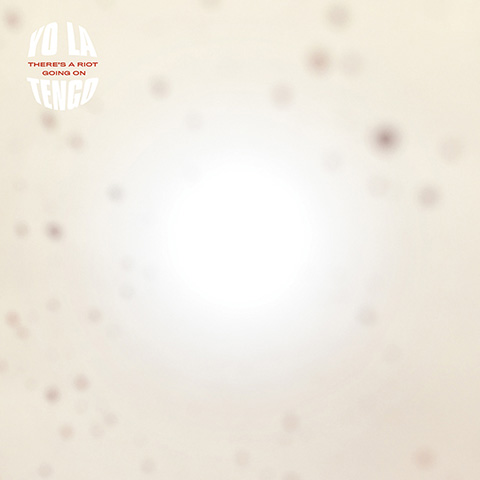MOST READ
- interview with xiexie オルタナティヴ・ロック・バンド、xiexie(シエシエ)が実現する夢物語
- Chip Wickham ──UKジャズ・シーンを支えるひとり、チップ・ウィッカムの日本独自企画盤が登場
- Natalie Beridze - Of Which One Knows | ナタリー・ベリツェ
- 『アンビエントへ、レアグルーヴからの回答』
- interview with Martin Terefe (London Brew) 『ビッチェズ・ブリュー』50周年を祝福するセッション | シャバカ・ハッチングス、ヌバイア・ガルシアら12名による白熱の再解釈
- VINYL GOES AROUND PRESSING ──国内4か所目となるアナログ・レコード・プレス工場が本格稼働、受注・生産を開始
- Loula Yorke - speak, thou vast and venerable head / Loula Yorke - Volta | ルーラ・ヨーク
- interview with Chip Wickham いかにも英国的なモダン・ジャズの労作 | サックス/フルート奏者チップ・ウィッカム、インタヴュー
- interview with salute ハウス・ミュージックはどんどん大きくなる | サルート、インタヴュー
- Kim Gordon and YoshimiO Duo ──キム・ゴードンとYoshimiOによるデュオ・ライヴが実現、山本精一も出演
- Actress - Statik | アクトレス
- Cornelius 30th Anniversary Set - @東京ガーデンシアター
- 小山田米呂
- R.I.P. Damo Suzuki 追悼:ダモ鈴木
- Black Decelerant - Reflections Vol 2: Black Decelerant | ブラック・ディセレラント
- Columns ♯7:雨降りだから(プリンスと)Pファンクでも勉強しよう
- Columns 6月のジャズ Jazz in June 2024
- Terry Riley ——テリー・ライリーの名作「In C」、誕生60年を迎え15年ぶりに演奏
- Mighty Ryeders ──レアグルーヴ史に名高いマイティ・ライダース、オリジナル7インチの発売を記念したTシャツが登場
- Adrian Sherwood presents Dub Sessions 2024 いつまでも見れると思うな、御大ホレス・アンディと偉大なるクリエイション・レベル、エイドリアン・シャーウッドが集結するダブの最強ナイト
Home > Reviews > Album Reviews > Yo La Tengo- This Stupid World

COVID-19というパンデミックがもたらした衝撃は、三波にわたり音楽を襲ったようだ。
第一波は、フィオナ・アップルの『Fetch the Bolt Cutters』のようなアルバムで、パンデミック以前に作曲・録音されたものだが、閉塞感や孤立というテーマ、また、自宅で制作されたような雰囲気が、ロックダウン中のリスナーの痛ましい人生と、思いもかけぬ類似性を喚起した。
第二波は、2020年の隔離された不穏な雰囲気の中で録音された作品群のリリース・ラッシュである。ニック・ケイヴとウォーレン・エリスの『Carnage』のように、緊張感ただよう分断の感覚を音楽に反映させたケースもあった。ガイデッド・バイ・ヴォイシズの『Styles We Paid For』では、離れ離れになってしまったロック・ミュージシャンたちが、電子メールで連絡を取り合いながら、デジタルに媒介された現代において失われつつある繋がりについて考察している。また、パンデミックによるパニック状態を麻痺させようと、アンビエントな音の世界に浸ることで、絶叫したくなるような静けさの中に安心感を生み出そうとしたアーティストたちもいた。ヨ・ラ・テンゴが短期間でレコーディングした、即興インストゥルメンタル・アルバム『We Have Amnesia Sometimes』の引き延ばされたようなテクスチャーとドローンは、一見するとこの後者の反応に当てはまるように思われる。
しかしながら、この作品は、パンデミックが音楽にもたらした第三の波、つまり、リセットと再生という方向性を示しているのかもしれない。そこで登場するのが、このバンドの最新アルバム『This Stupid World』である。
ヨ・ラ・テンゴについて、「過激な行動」や「激しい変化」という観点から語るのは、誤解を招く印象を与えるかもしれない。このバンドは、1993年の『Painful』で自身のサウンドを確立して以来、30年間にわたってその領域を拡張してきたわけだが、彼らがいままでに作ってきたどんな楽曲を聴いても、すぐに「これはヨ・ラ・テンゴだ」とわかるバンドである。それは、彼らの音楽がすべて同じに聴こえるという意味ではなく、彼らがいま占めている領域が、紛れもなく彼らのものであるように感じられるということだ。ヴェルヴェット・アンダーグラウンドが、わずか5枚のアルバムで切り開いた道は、いまやヨ・ラ・テンゴが20枚近いアルバムで包括的に探求し、拡張しており、たとえ彼らがその道の先駆者でなかったとしても、ヨ・ラ・テンゴこそがこれらの道を知り尽くした、影響力ある道案内だと言っても過言ではないだろう。
簡単に言うと、ヨ・ラ・テンゴは自分たちがどのようなバンドであるかを理解しているのだ。彼らが長年にわたって起こしてきた変化というのは、総じて、甘美なものと生々しいものの間の果てしない葛藤に対して、様々な取り組みをしてきたことによる質感の移り変わりであると言える。彼らは、身近にあるツールを使って、角砂糖から血液を抽出するための様々な方法を模索してきたのだ。そして、ここ10年間は『Fade』や『There’s a Riot Going On』のようなアルバムにおいて、その過程のソフトな一面の中に、彼らが抱えている様々な不安を包み込んでいる傾向があった。
『We Have Amnesia Sometimes』は、ある意味、そのような優しい世界への旅路の集大成のように感じられた。だが一方で、この作品は、メンバーだけが練習室にこもり、中央に置かれた1本のマイクに向かって演奏したものが録音されたという、非常に生々しいアルバムでもあった。その撫でるような感触は確かに心地良いものだったが、このアルバムはメロディーを削ぎ落とし、彼らがノイズと戯れ、ポップな曲構造から完全に遊離したもので、ジョン・マッケンタイアがプロデュースを手がけた『Fade』にあった滑らかなストリングスのアレンジメントからは完全にかけ離れていたものだった。それはリセットだったのだ。
では、『This Stupid World』はどのような作品なのだろうか。バンドは今作のプロダクションにDIY的なアプローチを全面的に取り入れており、7分間のオープニング曲 “Sinatra Drive Breakdown” から、かすれたような、粘り強い前進力がこのアルバムに備わっている。規制が緩和され、パンデミックより先のことが考えられるようになったとき、音楽シーンにいる多くの人が感じたものがあったが、それは、周囲の快適さが、抑圧されていた衝動に取って変わり、その衝動が爆発する出口を求めているという感覚だった。この曲はその感覚を捉えている。新鮮な気持ちで世界へと飛び出し、全てを再開するという感覚。再び人と会い、再び何かをしたいと思い、再び一緒に音を出す。もう2年も無駄にしてしまったのだから、いまこそが、それをやるときなのだ。
同時に、ヨ・ラ・テンゴが確実にヨ・ラ・テンゴであり続けていることは、決して軽視すべきことではない。A面の最初の数秒から、ヨ・ラ・テンゴであることはすぐに認識でき、彼ら自身もそのことに対して完全な確信を持っている。『This Stupid World』は、彼らの過去30年におけるキャリアのどの時点でリリースされてもおかしくないアルバムであり、誰にとっても驚きではなかっただろう。このアルバムの48分間は、3面のレコード盤という、通常なら忌まわしいフォーマットで構成されているのだが、ヨ・ラ・テンゴらしい遊び心と妙な満足感がある。A面は、ゾクッとするようなディストーションと力強い威嚇が暗闇から唸り声を上げ、2曲目の “Fallout” はバンドがこれまで書いた曲の中で最も快活で生々しいポップ・ソングであり、A面を締めくくる “Tonight’s Episode” は、絶え間なく鳴り続けるフィードバック音の中、シンプルなグルーヴが柔らかに跳ねている。B面では、ジョージア・ハブリーがヴォーカルを取って代わり、“Aselestine” では最も甘美なスポットライトが彼女に当たり、ヨ・ラ・テンゴの抑えの効いたサウンドへの基調が打ち出されていく。そして、最終的には、メロディーと、むさ苦しいノイズ・ロック、テクスチャーのあるドローンといった、彼らのコアとなるスタイルへと回帰する。B面の最後は、永遠にループする仕様(ロックド・グルーブ)になっており、これはちょっとしたイタズラ心か、あるいはアルバム最後の2曲を聴くために、最後のレコードを取り出す時間をリスナーに与えるためのものだろう。
最後の面では、ヨ・ラ・テンゴのノイズ・ロック的な側面がさらに深く掘り下げられており、何層にも重なったフィードバックとディストーションの中にリスナーを没入させていく。“Fallout” が、はるか彼方の海底からつぶやくように再び現れると、音楽は音程を外すように溶け出し、シンセ・ドローンの疲れながらも希望感ある流れに取って代わり、その雰囲気からデヴィッド・リンチを彷彿とさせるようなドリーム・ポップが浮き彫りになる。この2曲は、このアルバムを見事に締めくくるトラックであり、ここ数年ロウが追求してきた、激しい音の暴力と心が震えるような美しさの衝撃的な共存というものに、ヨ・ラ・テンゴがいままでになく近づいていることを示す2曲ではないだろうか。だが彼らはそれをヨ・ラ・テンゴらしく、最初から最後までやり遂げている。彼らは自分たちが何者であるか知っているが、『This Stupid World』では、その認識がより一層強く感じられるのだ。
by Ian F. Martin
The shock to the system delivered by the COVID-19 pandemic seems to have hit music in three waves.
The first was with albums like Fiona Apple’s “Fetch the Bolt Cutters”, written and recorded before the pandemic but where the theme of being trapped and the secluded, homemade atmosphere evoked unexpected parallels with the bruised lives of locked-in listeners.
The second was the initial rush of releases that were recorded in the atmosphere of isolation and unease of 2020. In some cases, like Nick Cave and Warren Ellis’ “Carnage”, this meant channeling that tense sense of fragmentation into the music. In Guided By Voices’ “Styles We Paid For” it meant dispersed rockers working by email to reflect on the loss of connection in digitally mediated lives. Others sought to anaesthetise the panic, using ambient sonic furniture to craft a sense of security out of the screaming silence. It’s this latter response to the situation that the drawn-out textures and drones of Yo La Tengo’s speedily recorded, improvised instrumental album “We Have Amnesia Sometimes” seemed on the face of it to fall into.
However, it perhaps also points the direction towards a third wave of influence brought to music by the pandemic: one of reset and even rejuvenation. It’s here that the band’s latest album, “This Stupid World” comes in.
Talking about Yo La Tengo in terms of radical moves and sharp shifts often seems like a misleading way to discuss them. This is a band where, at least since the expansion of their sound mapped out in 1993’s “Painful”, you can hear almost anything they’ve done over those thirty years and instantly know it’s them. This is not to say that their music all sounds the same so much as that the territory they occupy now feels so indisputably theirs. Paths blazed by The Velvet Underground over a mere five albums have now been explored and expanded by Yo La Tengo so comprehensively over nearly twenty albums that even if they weren’t the first, they’re these roads’ most immediately recognisable travellers and most influential stewards.
To put it simply, Yo La Tengo know what sort of band they are. The ways they have changed over the years have generally occurred in the shifting textures of their varying approaches to the endless struggle between the sweet and the raw — in finding different ways, with the tools at hand, to get blood from a sugarcube — and over the past decade or so, albums like “Fade" and “There’s a Riot Going On” have tended to wrap up whatever anxieties they have in the softer side of that process.
In some ways, “We Have Amnesia Sometimes” felt like a consummation of that journey into gentle fields. It was also a very raw album, though, recorded by the band alone in their practice room, playing into a single centrally placed microphone. There was certainly something soothing about its caress, but it was an album that stripped away melody and let them play with noise, liberated entirely from pop song structures — as far as the band has ever been from the smooth string arrangements of the John McEntire-produced “Fade”. It was a reset.
So what does that make “This Stupid World”? Well, the band have fully embraced a DIY approach to production, which from seven-minute opener “Sinatra Drive Breakdown” gives the album a scratchy, insistent forward momentum. It captures that feeling many of us in the music scene felt as restrictions relaxed and we start thinking beyond the pandemic, the comfort of the ambient giving way to a repressed urgency seeking an outlet from which to explode. The feeling of lurching out into a world where we are starting again, fresh: meeting people again, wanting to do something again, making a noise together again. We’d wasted two years already and now was a time to just do it.
At the same time, it’s important not to understate the extent to which Yo La Tengo are always definitively Yo La Tengo. From those first few seconds of Side A, the band are immediately recognisable and completely assured in themselves — “This Stupid World” is an album they could have released at any point in the past thirty years and surprised no one. Even in how the album’s 48 minutes are sequenced over the usually cursed format of three sides of vinyl manages to be both playful and strangely satisfying in a distinctly Yo La Tengo way. Side A growls out of the darkness in squalls of thrilling distortion and reassuring menace, second track “Fallout” as fizzy and raw a pop song as the band have ever written, and side closer “Tonight’s Episode” hopping softly around its simple groove beneath a constant hum of feedback. Side B flips the story with Georgia Hubley taking vocals for one of her sweetest spotlight moments in “Aselestine”, setting the tone for a tour through the band’s more sonically restrained side, eventually returning to their core conversation between melody, skronky noise-rock and textured drones. It ends on a lock-groove — perhaps born from a sense of mischief or perhaps to give the listener time to whip out the last disc for the final two songs.
The final side digs even deeper into Yo La Tengo’s noise-rock side, immersing the listener in layers of feedback and distortion, “Fallout” reappearing in a distant, submarine murmur before the music slips out of tune and dissolves, giving way to tired but hopeful washes of synth drone, crafting Lynchian dreampop out of the the ambience. These two tracks make for an intriguing exit to the album, and together form perhaps the closest the band have yet come to the devastating coexistence of harsh sonic violence and heart-stopping beauty explored over the last few years by Low. They way they do it is Yo La Tengo all the way, though: they know who they are, but on “This Stupid World” they’re just more so.
イアン・F・マーティン
ALBUM REVIEWS
- Loula Yorke - speak, thou vast and venerable head/ Loula Yorke - Volta
- Actress - Statik
- Black Decelerant - Reflections Vol 2: Black Decelerant
- High Llamas - Hey Panda
- The Stalin - Fish Inn - 40th Anniversary Edition -
- KRM & KMRU - Disconnect
- Cornelius - Ethereal Essence
- Kronos Quartet & Friends Meet Sun Ra - Outer Spaceways Incorporated
- Martha Skye Murphy - Um
- Mouchoir Étanche - Le Jazz Homme
- Taylor Deupree - Sti.ll
- John Cale - POPtical Illusion
- Amen Dunes - Death Jokes
- A. G. Cook - Britpop
- James Hoff - Shadows Lifted from Invisible Hands


 DOMMUNE
DOMMUNE




